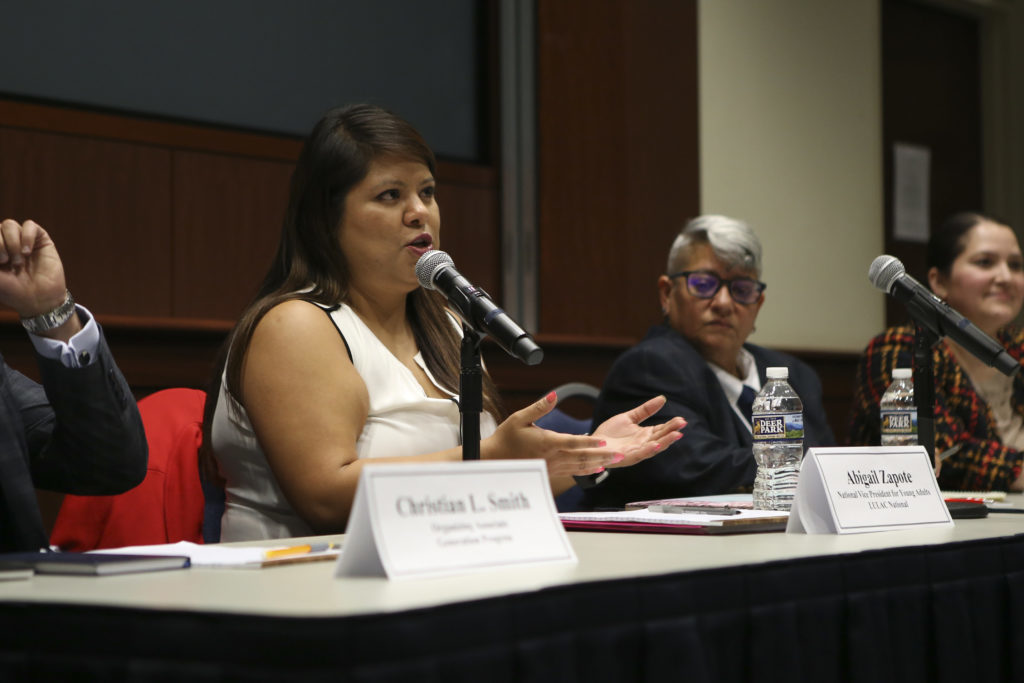Updated: Oct. 17, 2017 at 10:38 a.m.
GW’s chapter of the League of United Latin American Citizens hosted its first individual event Thursday, a panel of Latino advocates and academics who advised a nearly full audience at the Marvin Center Amphitheater about how young people can work to improve their communities.
The panel event, co-sponsored by the Cisneros Hispanic Leadership Institute, was entitled “How Latino millennials can make a difference in their communities.”
In case you missed the event, here are the three main takeaways:
1. Stand up
Jesus Montes, the vice president of GW’s LULAC chapter, said the first event left students feeling empowered to pursue a call to action when they see injustice.
“They engaged more with the audience and persuaded them more to take action than to just tell them what’s wrong,” Montes said.
Christian Smith, an organizing associate with Generation Progress, said students should ask themselves why they stand up for the issues they support.
“You go to a protest and you shout at whatever building, whatever politician and whatever it is, you don’t really know what the end goal is until you really look inward and assess what you’re actually fighting for,” Smith said.
2. ‘You are an influencer’
Sindy Benavides, the interim chief operating officer for LULAC national, said Latino students should use the networks and friendships they’ve established to make change on a larger scale because “you are an influencer.”
“It is your responsibility to use your voice, to use all your technology that you have from Snapchat, to Facebook, to text messaging, to calling, to going to members of Congress,” she said.
Many college-age Latino students can speak both Spanish and English so they are in a unique position to bring awareness to issues important to them and to their communities, Benavides said.
“You just sitting in this auditorium – you have a privilege,” she said. “There are so many more people who would love to be in your shoes.”
3. Build future skills
Abigail Zapote, the executive director of Latinos for a Secure Retirement and the national vice president for young adults at LULAC, said learning how to delegate is an important ability for leaders.
“You being a leader is great, but at the end of the day you’re not going to solve the problem – the problem is going to be solved by involving others,” she said. “Being a better leader is being able to rely on other folks to help you achieve that goal or that dream.”
Lisbeth Rivera, the religion and faith program director for the Latino and Catholic Initiatives at the Human Rights Campaign, said it’s important to bring people together to understand common issues and values.
“Learn how to join others in protecting what you have,” Rivera said. “The power of the many will always be better than the power of the one.”
This post was updated to reflect the following correction:
The Hatchet incorrectly reported that the event was the first one hosted by the League of United Latin American Citizens. It was the group’s first individual event, but the organization had previously participated in events with other student groups. We regret this error.




